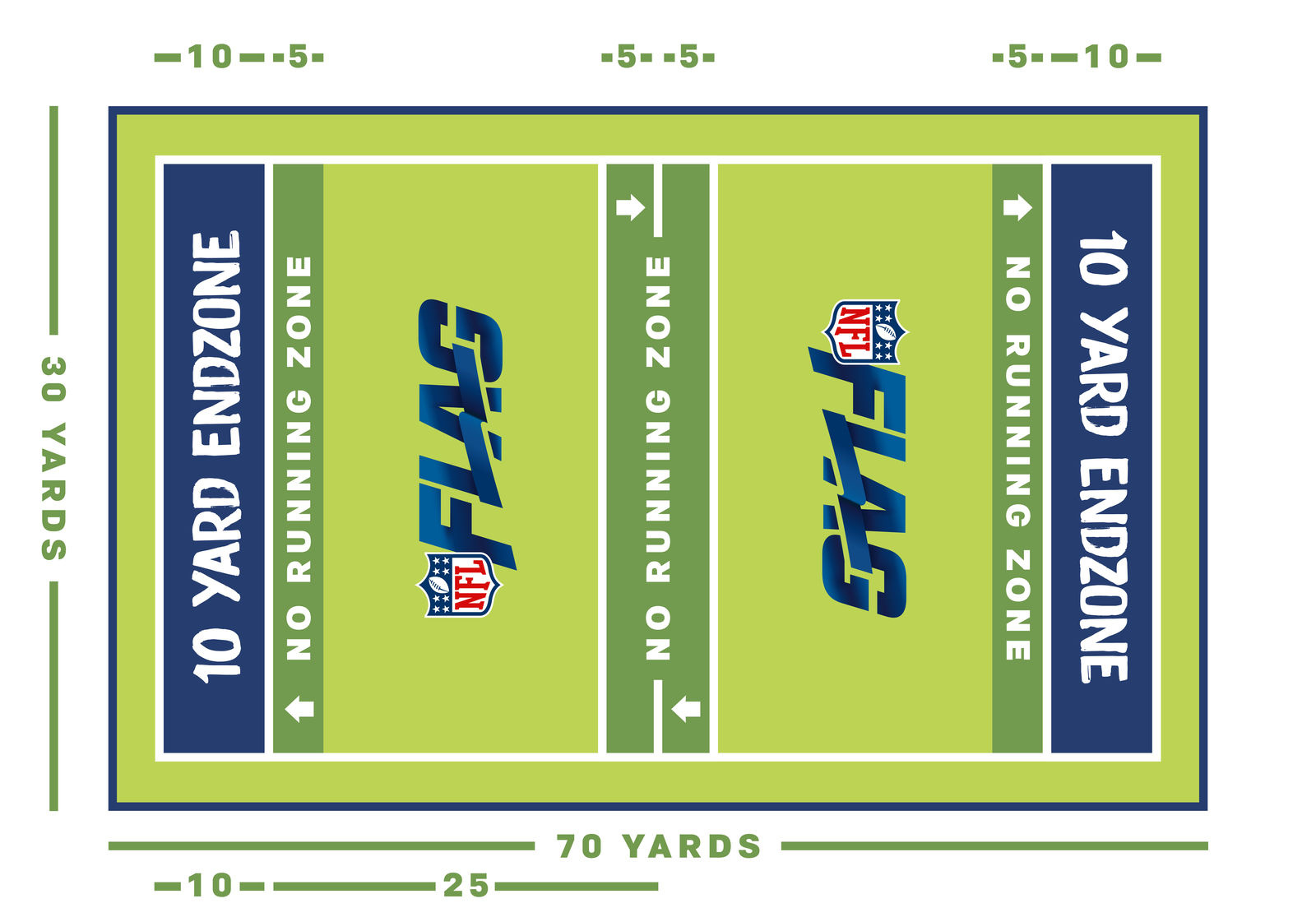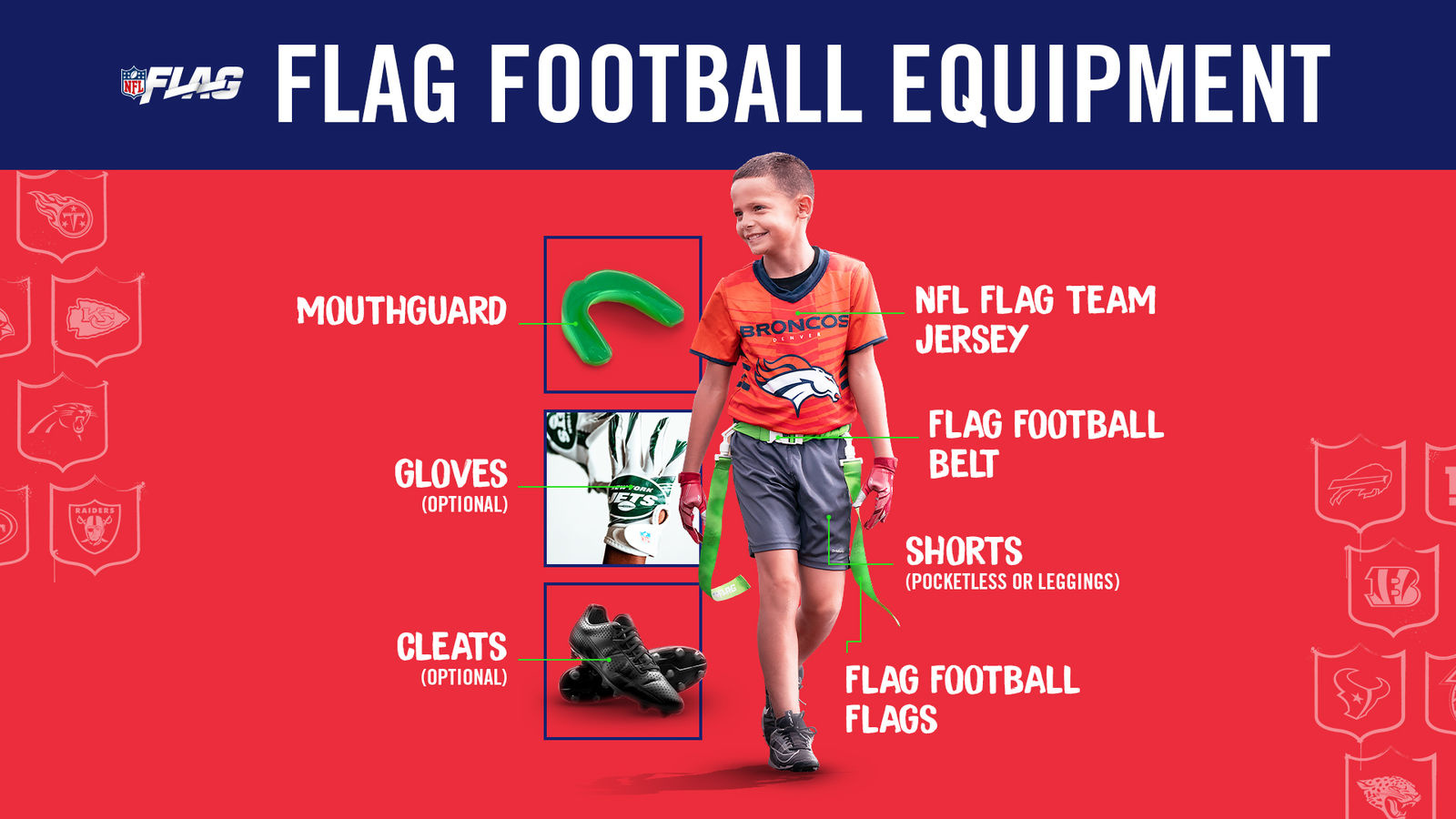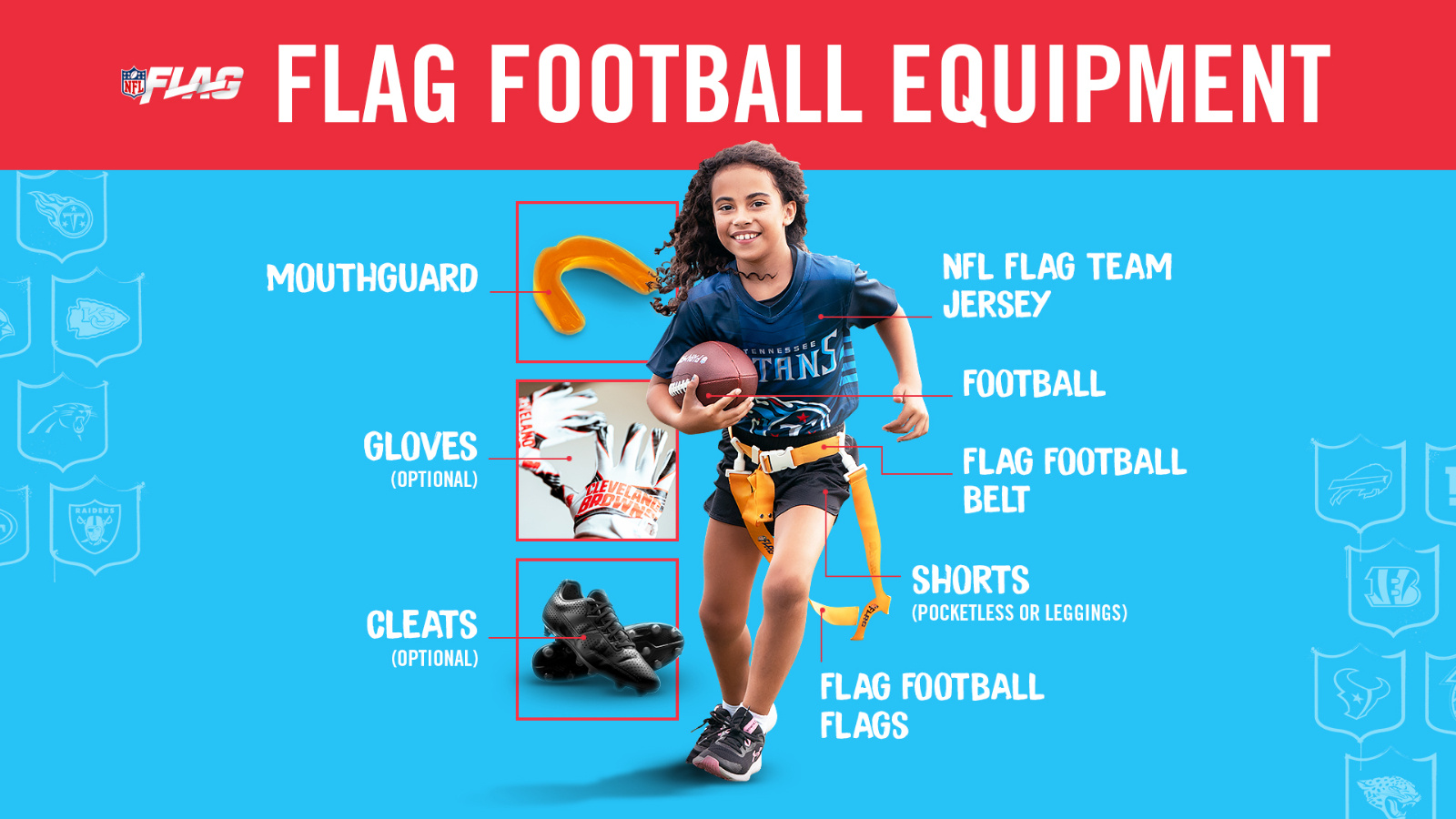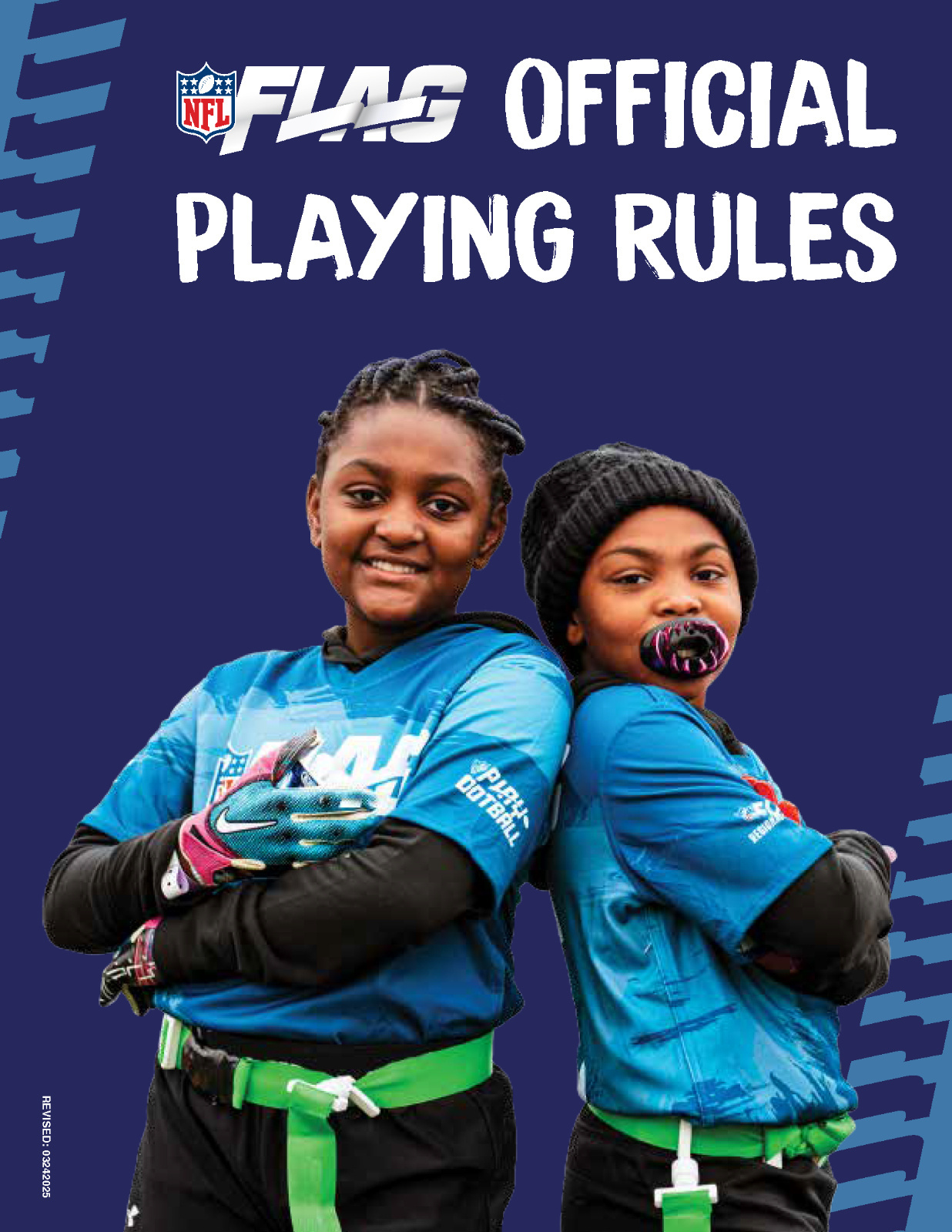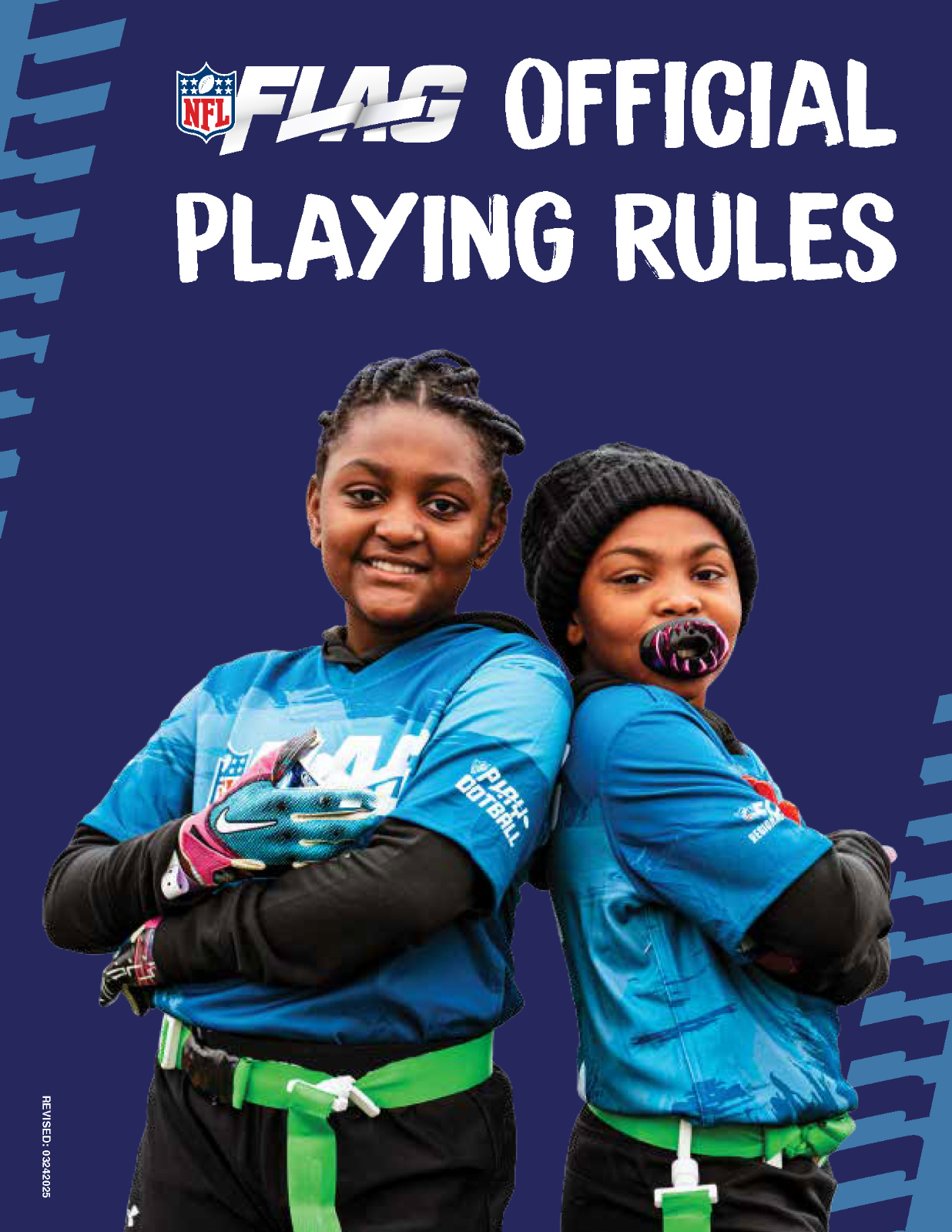Resources
Photos View More
how to play
Photos View More
Welcome to nanaimo's newest flag football league
Official NFL Gear: NFL FLAG is the largest flag football league and the only league where players can sport official NFL gear.
Leagues for All Ages: Boys, girls, and coed teams ages 7 to 17 can join NFL FLAG leagues, regardless of skill level.
Path to College: Women's flag football is now a sanctioned college sport, with NAIA universities offering scholarships.
Translatable Skills: Flag football skills directly translate to (tackle and vice versa) making it a great starting point to learn the fundamentals.
Team Building: NFL FLAG teaches leadership, sportsmanship, and self-confidence through its team-oriented environment.
Fun and No-Contact: With no-contact rules and a focus on teamwork, NFL FLAG ensures that kids have fun while playing.
Training and Certification: Coaches and officials undergo yearly training and certification to ensure a safe and fair playing environment.
Join NFL FLAG today and experience the positive impact it can have on your child's development both on and off the field.
why flag football
Offers Inclusivity: Flag is a great sport for both boys and girls of all ages. There are no height or weight restrictions, making it a game everybody can play.
Favors Flexibility: Flag supports all skill levels and sports priorities – from fun competition to learning the fundamentals of football to prepare for a transition into tackle.
Promotes Fitness: Flag encourages physical activity and healthy movement, ensuring your child spends quality time away from the screen.
Introduces Football: Flag provides a natural entry point into the world of football, creating opportunities for your child to learn, engage and grow with the sport.
Teaches Teamwork: Flag instills the critical value of teamwork and teaches your child how to play and interact well with others.
Builds Confidence: Flag equips your child with the skills to build and grow their confidence levels both on and off the field.
Instills Sportsmanship: Flag teaches your child what being a good sport and team player looks like, emphasizing what it means to win and lose gracefully.
discover flag football
Did you know that while youth participation in sports overall has declined 13% over the last decade, more kids than ever are getting involved with flag football? Flag is more than just a game – it’s a values-focused activity for your child to learn and grow.
Survey Says…
- Among surveyed parents of kids who play flag, teamwork was the #1 benefit associated with the sport.
- Over half of all surveyed parents agree that developing friendships with teammates helped contribute to their child’s love of the game.
- 72% of surveyed parents agree that flag football is useful and/or necessary before transitioning to tackle.
- 68% of surveyed parents agree that flag football should be available for all ages.
- Over half of surveyed parents of current flag players agree that building confidence is a key benefit of flag.
the end game
Supporting Community: Flag football creates a welcoming community for your child to be a part of and grow with across their journey with the sport.
Sense of Achievement: Flag football provides an avenue for your child to celebrate their achievements, from winning games, to growing their trophy collection, to tracking progress and improvement in skills.
Active Lifestyle: Flag football is a key tool in helping your child develop life-long healthy habits – instead of staying inside playing video games, flag gets them up, gets them out and gets them exercising.
Safety Information: NFL FLAG coaches must agree to terms and conditions that set the standards for the league. NFL FLAG coaches complete background screenings every year. NFL FLAG provides rules and handbooks to assist leagues in their operations.
PLAYER
code of conduct
As a player, I agree to follow this code of conduct:
- I will respect the game by playing fairly and to the best of my ability.
- I will lead by example, practice good sportsmanship and demonstrate self-control.
- I will not criticize referees and will allow coaches to handle any issues with them.
- I will support and encourage teammates and prioritize team success over mine.
- I will represent my team with class, handle winning and losing with grace, and ensure my behavior always reflects positively on my teammates, coaches and school.
- I accept mistakes as part of sports and will use them as opportunities to grow.
PARENT/GUARDIAN
code of conduct
As a parent/guardian, I agree to follow this code of conduct:
- I will encourage my child to play fairly and to the best of their ability.
- I will practice good sportsmanship by demonstrating positive support for all players, coaches, fans and officials.
- I will not criticize officials and will allow the coach to handle any issues.
- I will do my best to make sports fun and help my child enjoy the experience. Please note this is a new league and our main intent is to provide a safe, fun and meaningful experience. We ask that you exercise patience as we continue to grow the league.
instill confidence
Confidence and opportunity are two of the most important things that parents and coaches can give players. For some players, things come easy, and their personalities may exude confidence. Others struggle to believe in themselves or to give their best effort. Confidence is something you can instill and improve by exhibiting great energy, providing positive feedback and showing your child you know how hard they are working. As your child leaves for a game, choose what you say wisely – they will carry your words with them onto the field. Here are phrases that can help instill confidence:
Do Say…
- You can do it.
- We’re rooting for you.
- You are awesome.
- You’ve done it before. You can do it again.
Don’t Say…
- Woah, those players look big.
- Don’t screw up.
- It can’t be as bad as last time.
- Make me proud.
7 ways to build mental toughness
Athletes can practice and prepare to get their bodies in the best shape for a game, but getting prepared mentally is different. Fear of failure is real and affects how athletes of all ages perform.
Look to the future. Everyone loses once in a while, but that doesn’t make it easy. Help your child put that last play behind them and focus on the next opportunity.
Focus on the positive. Even after near perfect performances, it’s natural for players to dwell on one or two failures. Help your child focus on successes and how to learn from failures in order to overcome them.
Don’t punish every mistake. Not every misstep needs to be addressed. Don’t step in until mistakes become a habit that needs to be corrected.
Don’t show disappointment. Your job as a parent is to help your child build confidence — so encourage, support, and just be there for them.
Let them own it. When young athletes accept they make mistakes, that is when progression starts.
Be the rock. Emotions ride high during games, and coaches and players sometimes overreact to what is going on. Your job is to show your child how to handle both successes and failures maturely.
Repeat after me. In the end, belief has to come from within. Create a mantra for your child to say over and over when times get tough. “Let’s do it,” “I believe,” and “I got this” are all powerful starting points.
| Date | Time | Title | Home | Away | Location |
|---|


